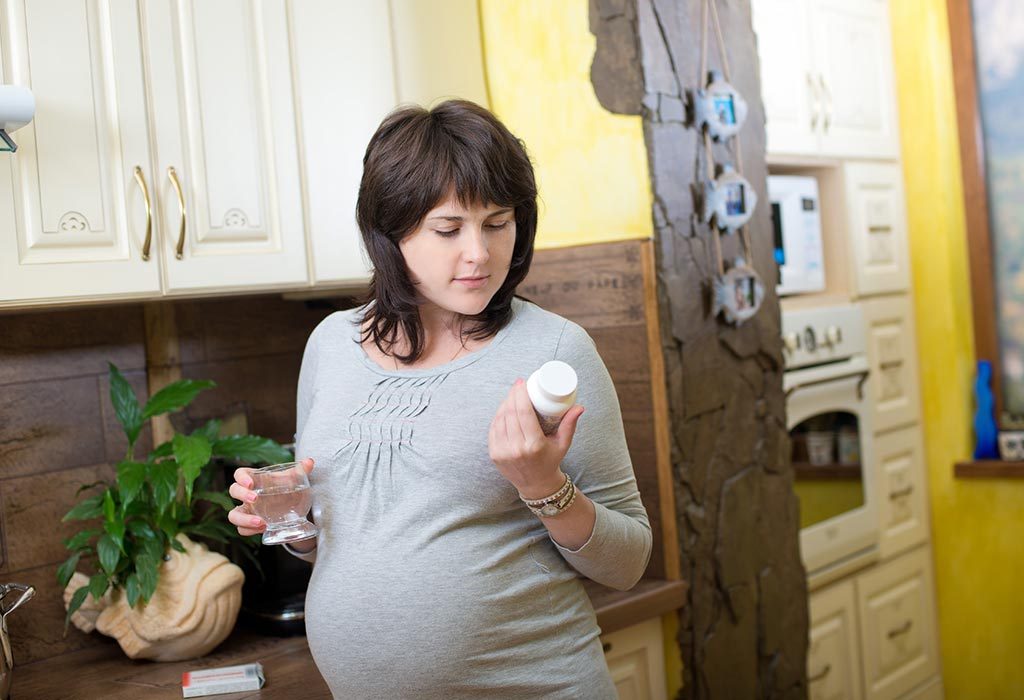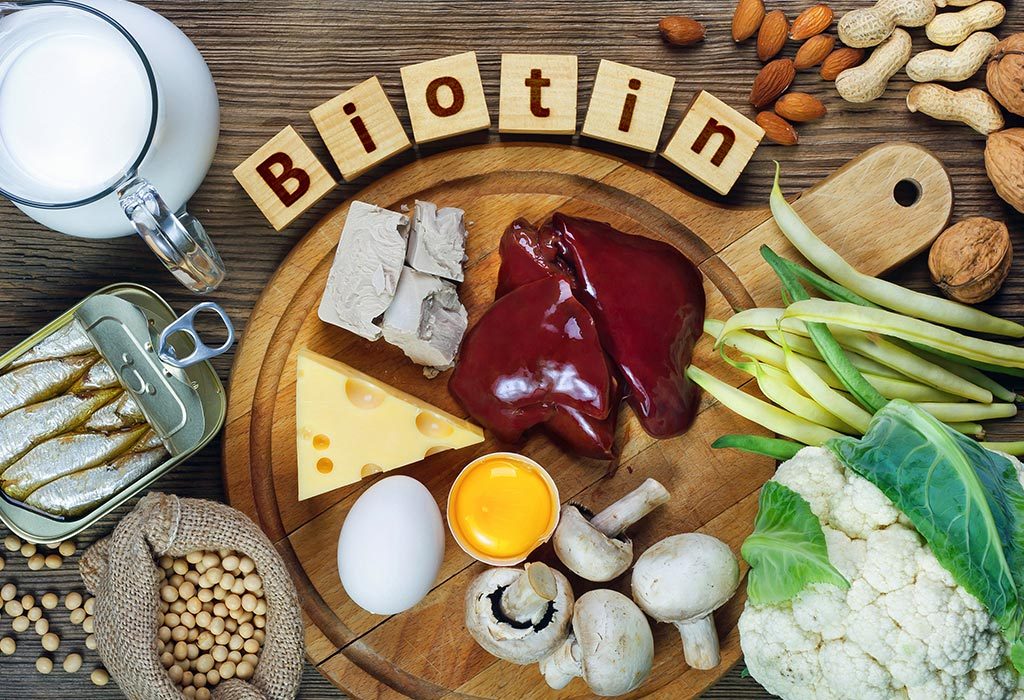In this Article
An unborn baby is completely dependent on their mother for nutrients and vitamins, which is why pregnant women are advised to follow a healthy diet. Expectant mothers should ensure that their food chart includes all the essential nutrients and vitamins that are required to sustain a pregnancy. One such essential vitamin is biotin. It is a water-soluble B-complex vitamin which plays a major role in the conversion of food to energy. Biotin is required to form the enzymes that help in breaking down proteins, carbohydrates, and fats. This is why doctors advise pregnant women to take essential supplements like biotin and folic acid tablets during pregnancy.
Can You Take Biotin During Pregnancy?
Biotin is also known as vitamin H or B-7 and yes, the intake of prescribed biotin is safe during pregnancy. Supplemental biotin can help in curing the deficiency of biotin, but too much of it might increase the chances of a miscarriage. Studies conducted on animals show that biotin is teratogenic and may result in a miscarriage. Therefore, you must consult your doctor before you start taking any supplemental biotin.
Why Do You Need Biotin During Pregnancy?

Biotin helps in the conversion of food to energy. It is a coenzyme which is required for the metabolism of glucose and amino acids. But since it is soluble in water, the extra biotin simply passes through the urine. It is advised to consume biotin because it helps in making nails and bones strong and also aids in hair growth. It also helps in keeping the liver, skin, and nervous system healthy. It helps in regulating the blood sugar levels.
Biotin Deficiency During Pregnancy
Many expectant women suffer from a biotin deficiency because their body breaks down biotin more rapidly during pregnancy. According to studies, 33% – 50% of the expectant women are deficient in biotin, and this occurs mostly during late pregnancy.
Biotin deficiency can be caused due to several health issues, including:
- Increased risk of seborrheic dermatitis
- Poor nail and hair health
- Peripheral neuropathy
- Diabetes
- Reduced appetite
- Fatigue
- Insomnia
- Depression
What Is the Recommended Dosage for Pregnant Women?
Expectant women should have an intake of at least 25-30 mcg of biotin per day. The symptoms of toxicity do not occur at this dosage. Biotin supplements of this dosage might help an expectant woman prevent the issues caused due to biotin deficiency.
What Are the Food Sources of Biotin?

Some biotin-rich food sources are as follows:
1. Dairy Products and Eggs
Egg yolk is said to be rich in biotin. Dairy products such as milk, cheese, etc. also have good amounts of biotin. These food sources can be easily incorporated into your regular diet.
2. Nuts and Grains
Nuts and whole grain products like pecans, walnuts, peanuts and almonds are considered to be rich in this vitamin.
3. Fish and Meat
Sardines, organ meats, and salmon are considered to be rich in the concentration of biotin.
4. Legumes
Black-eyed peas, soybeans, and other legumes are also rich sources of biotin.
5. Fruits and Veggies
Many fresh fruits and vegetables are excellent sources of this vitamin. Avocadoes, cauliflower, raspberries, mushrooms, swiss chard, carrots, cucumbers, onions etc. have a good concentration of biotin.
Can Biotin Cause Birth Defects?
In some cases, a deficiency of biotin in pregnant women may also lead to birth defects. In a study conducted on animals, it was proven that the deficiency of biotin might result in birth defects in animals, particularly issues like cleft palate, skeletal deformities, cleft lip, etc. It is possible for these effects to show up in humans as well.
Taking biotin supplements is considered safe during pregnancy, but only if taken in recommended amounts. You should take a doctor’s advice to find out if you need to take biotin supplements or not. Excess of biotin during pregnancy may cause several complications and might also lead to a miscarriage.
Resources and References: Medical News Today









